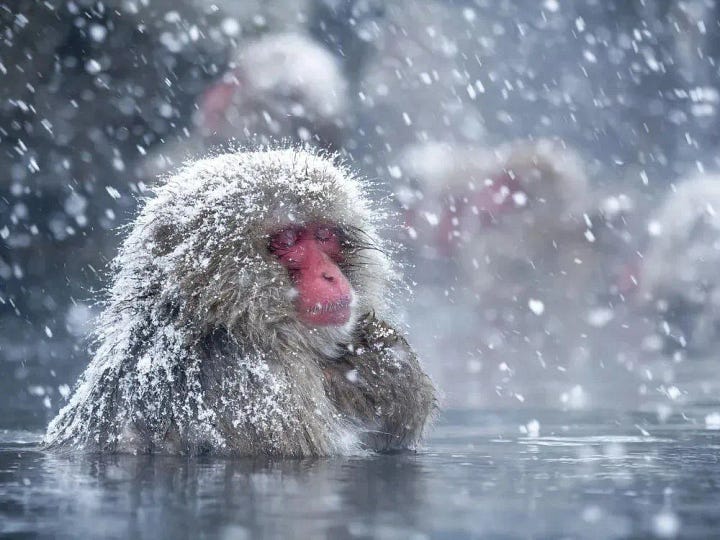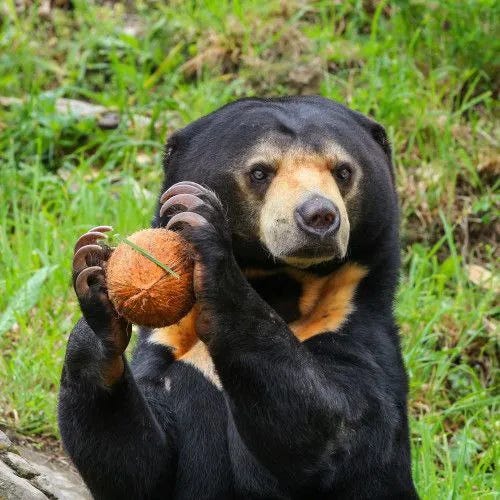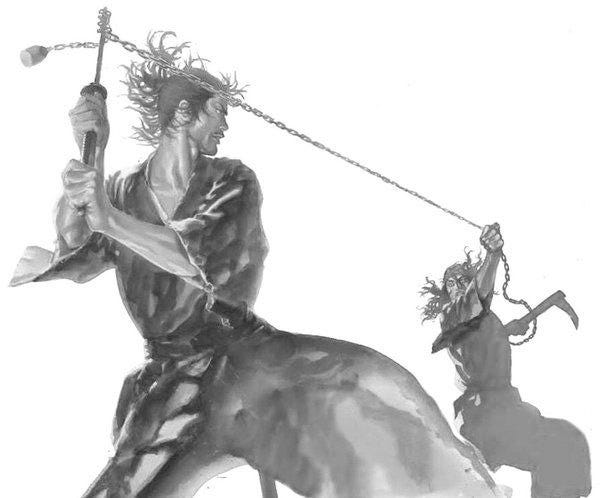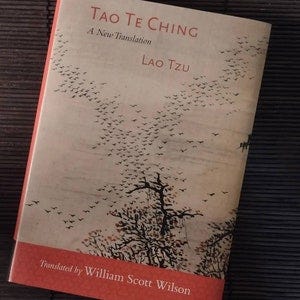"The world is an instrument regulated by the god,
And cannot be fabricated into something else.*
He who tries to do this will damage it.
He who tries to grasp it will lose it."
—Tao Te Ching, Verse 29.
Before we get to the critical note above, pertaining to the rest of this piece, marked with the asterisk, note the following is not so much an interpretation, analysis of the Tao Te Ching. Because that is, as it says, an interpretation. All the big and great (and philosophical and spiritual and dilectical) texts are like that. For you to read it, digest it. For you to do the work. The world has gotten lazy. Sloppy. It just wants regurgitated halfbaked bullshit. Pre and reheated microwave oven meals. Not aesthetic, spiritless and distasteful.
So, the following is, for now, perhaps for the paid subscribers a more in depth Tao Te Ching will follow, a curation of my personal favorite verses of Tao Te Ching. Fury’s verses. A way.
Rough, very rough translations (approximations) of the key terms:
Tao = Way
Te = Virtue
Ching = Classic (as in a Classic Text).
*In the following curated verses, the word Fabricated appears a lot. This mostly, not completely aligned with how a Westerner and or someone from modernity and or postmodernity would think about the word. Yes, it does have to do with the word as in made up. But it’s much deeper and grander, it’s existential, as in pertaining to the latin word which is the etymological root of fabricate, which is “facere”: (1) to do (2) to make.
(You can see this latin root return in the languages inspired by the Romans and still have romanic roots, such as French: “faire” = to do, also has a quite broad meaning, tbh.)
In Latin the verb facere led to the noun Faber (see “Fable” . . . ), which meant somebody who made and did.
And this is why fabricate in Tao Te Ching verses is existential, it’s about somebody enacting will, and that is to say, specifically The Grand Will of the Tao Flow. The first and much bigger will of nature. Pertaining to some kind of deterministic and or fatalistic notion. Wont go too deep into that. However, there is free will either subjugated to the Tao Flow and there is a meshing and marrying of your will with this Grander Will. This is Wei Wu Wei. This is where the translation of fabrication comes from.
The term Wu Wei gets thrown out a lot out there (mostly by people who dont know jacksh about it and just regurgitate catchy phrasses, walk the talk); just as much as it’s Japanese corollary: Wabi Sabi. Go with the flow, man. Abundance mindset. Let go of the pendulum; switch tracks in life. Change frequencies. Empty your mind, friend. Have a pure heart. Absolve and repent. Adhere to the higher frequencies of life and your higher self.
"The sage acts, but relies on nothing;
He accomplishes and moves on.
By moving on, he never has to leave."
—Tao Te Ching, Verse 2.
"He who, forgetting the limitations and false measurements of humanity, could rightly imitate the behavior of animals—their gait, breathing, cries eg.—found a new dimension of life: spontaneity, freedom, "sympathy" with all the cosmic rhythms, and hence, bliss and immortality."




"...the sage
Covers himself with rough clothes of animal fur, and
holds the stringed jewels close to his chest."
Tao Te Ching, Verse 70.
Shamanism in parts of Asia harken back to as far as 700 BCE
Mythic hero Yu wore bearskins, personifying the bear spirit.
Parallels can be made with the Nordic Berserkers and the Greek Herakles (Hercules)


“Once you get out of your own way, life comes your way.”
"Chun-tze", a term that meant "prince" in high antiquity
now was to mean "Gentleman"
—from Tao Te Ching

"If you wish to grasp something,
You must momentarily give it up."
—Tao Te Ching, Verse 36

"The sage
Does not step out, but knows with certainty.
Does not look around, but identifies things.
Does not fabricate, but things come to fruition."
—Tao Te Ching, Verse 47.
"The highest virtue does not act virtuously;
Therefore, virtue is at hand.
The lowest virtue wont let go of virtue;
Therefore, it has none."
—Tao Te Ching, Verse 38
"The nature of the myriad things is spontaneity. It should be followed but not interfered with. The sage understands Nature perfectly and knows clearly the condition of all things. Therefore, he goes along with them but takes no unnatural action. He is in harmony with them but does not impose anything on them."
—from Tao Te Ching.
This spontaneity is the perfect cut-off point. Because it brings us to two things. First, the Hagakure, which says immediacy is the way of Samurai. And intuitively, we know it brings and has brought us to authentic living. And I myself have written almost 200 pages on the matter. (become a paid member for a year, I’ll send you all my books complimentary).
As seen above, there’s a lot to chew on, and expound and expand upon next time.
A rough guide for those reading HOOA substack.
So far three themes have emerged:
Fury’s Serialized Fiction Novel: Ghosts of Wolves (with Viking lore and Scandinavian themes)
Americana: foremost and firstmost diving into the works of Cormac McCharthy
Orientalism: now Tao Te Ching. Next Hagakure, other Bushido, Musashi, Takuan Soho (mentor and peer of Musashi), Yagyu Munenori (peer and rival of Musashi), Fury’s Sun Tzu Art of War.
And much more to come.
Thank you for reading.
I know someone’s going to ask.
But I read this Tao Te Ching version:
Why?
Two reasons.
One, I trust the ninja William Scott Wilson. Before reading this work, I’d read the translations of him of the Hagakure and Book of Five Rings and the Musashi biography by him: The Lone Samurai. The man simply knows what he is doing and talking about. He’s the authority on Japanese samurai literature. Therefore, the trust.
It’s like choosing between two rifles, and you choose the one you already fired with, because you know it works, and you’ve tested it yourself, you’ve used it yourself.
Second and finally, beautiful ancient Chinese water color painting designs inside. I’m not one for aesthetics, I just want my words and read it, but it does suit the Tao theme tbh.











